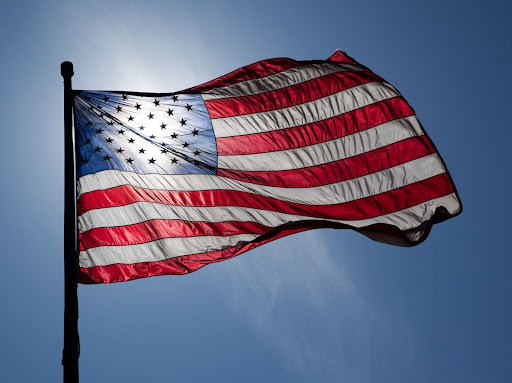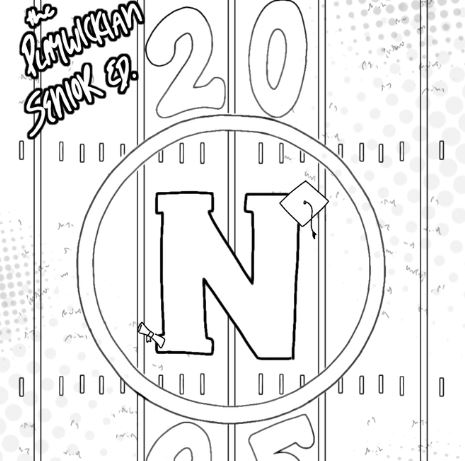223 years ago, the greatest president America could ever ask for took office. Founding Father Thomas Jefferson became the third elected president in American history and was poised to leave his mark. As the primary author of the Declaration of Independence and the purchaser of Louisiana from Napoleon, Jefferson solidified his reputation as the most prosperous president in American history.
Today, America is a global beacon in democracy, innovation, and cultural diversity, achievements that owe much to Jefferson. His vision of liberty and his crucial role in drafting the Declaration of Independence laid the foundation for the nation’s core values of freedom and individual rights.
Without Jefferson’s influence, modern America might lack the strong democratic principles that continue to shape its society. Also, Jefferson was quite a quirky inventor. He designed a swivel chair so he could spin around during long discussions, making work a bit more enjoyable. He was also a passionate plant lover who introduced hundreds of new species to the United States, including various tulips.
These playful facts show that Jefferson wasn’t just serious about politics; he had a lively, inventive spirit that helped shape the spirited and innovative nation America is today.
The Louisiana Purchase: Purchasing Prosperity
Before we get this party started, let’s take a trip back to the year 1800, when the Treaty of Ildefonso was signed. This secret treaty between the French and Spanish allowed France to take full control of the Louisiana territory, making a significant mark in North America. But in 1803, funds were running low for France, and without a bullet fired, Napoleon would agree to sell Louisiana to the United States for 15 million dollars (350-400 million as of today).
The purchase of Louisiana was a major step in American history as Jefferson showed a major diplomatic achievement in gaining land with no war, something America struggled to do at the time. He also gained control of two important trade routes, the Mississippi River and Port Orleans, and acquired enough land for settlement, agriculture, and future states.
Personally, I believe this move has single-handedly allowed America to be as powerful as they are today. It transformed the nation from a modest collection of states along the Atlantic coast into a vast continental empire with endless opportunities for growth and prosperity.
The Louisiana Purchase not only provided valuable land and resources but also demonstrated Jefferson’s ability to think strategically and act decisively for the good of the country. Without this bold decision, the United States might never have had the space to flourish into the global power it is now, making it one of the most pivotal moments in American history.
Ink, Ideas, and Independence
Even before the Louisiana Purchase, Jefferson accomplished something even more impressive: he authored the official document that declared independence from Britain. Known as the Declaration of Independence, this was largely Jefferson’s creation, and he is said to have finished the rough draft in just 17 days. He often worked alone during this time, showing a lot of courage and strong principles.
Because of this, Jefferson set an important example for leadership in America—one that’s about standing up for what’s right and taking bold action. This moment also helped him later promote ideas like popular sovereignty and freedom of religion.
I think Jefferson’s story is pretty inspiring. It shows us that real leadership sometimes means working alone and sticking to what you believe in. Imagine sitting by yourself, writing words that would inspire a whole nation to be free—that takes guts. Jefferson’s ability to stay committed and act on his beliefs teaches us that true leaders aren’t always the loudest or most visible.
Sometimes, leadership starts in quiet moments of conviction, and Jefferson’s courage reminds us all that doing what’s right is worth standing up for.
Building Bridges, Not Walls
In a nation founded on liberty, building bridges of understanding and not putting up barriers is the foundation of lasting peace. Jefferson became one of the first to figure this out. In the late 1770s, Jefferson began to write the Virginia Statute for Religious Freedom, stating that nobody should have to pay taxes or attend services of religions they do not believe in for the support of religious worship.
This controversial draft by Jefferson was passed in 1786, asserting the separation of church and state in Virginia five years before the official separation.
To me, Jefferson’s words are more than just history—they’re a reminder of what we can achieve when we put understanding the people above the division of the common man. I think about the countless individuals who, even today, feel pushed aside or misunderstood because of their religious beliefs.
Jefferson’s courage to advocate for religious freedom wasn’t just about laws; it was about recognizing our shared humanity and the importance of respecting each other’s choices, even if that created some sort of difference in the community.
That spirit of openness and acceptance is what keeps our society moving forward now, so think about its effect then. It’s a call for all of us to listen more, judge less, and build bridges instead of walls—because that’s how true peace begins.
The People’s Pen: Writing Rights and Freedoms
During the time of the American Revolution, Jefferson realized firsthand that educated citizens could better defend their rights than the untrained. When he saw how limited access to education was, he raised serious concerns about its threat to democracy and how it made the country vulnerable to tyranny.
Jefferson quickly became an advocate for public education, and in 1819, he founded the University of Virginia — his proudest achievement.
He opened a secular, public university that allowed all people to improve themselves, not just the privileged few. Before the founding of Virginia, Jefferson demonstrated that ordinary people could have a voice in government, exemplified by the first peaceful transfer of power in American history.
This moment showed everyday Americans that their votes truly mattered and that the government was accountable to the people.
In a way, Jefferson’s actions weren’t just about policies or institutions—they were about empowering individuals. He believed that education was the key to unlocking each person’s potential, giving them the tools to participate meaningfully in democracy. It’s inspiring to think that over two centuries ago, Jefferson understood how vital it was for ordinary folks to feel they could shape their future.
His legacy reminds us that democracy isn’t just about voting; it’s about creating a society where everyone has a real chance to learn, grow, and have their voice heard. That’s a message as relevant today as it was then—because a truly free and fair nation depends on the power of an educated, engaged people.
In more ways than one, Jefferson inspired and helped guide the young nation of America. At just 33 years old, he signed the Declaration of Independence, a document that laid the foundation for our freedom and democracy. By the age of 50, he was behind one of the most significant achievements in American history—the Louisiana Purchase, which doubled the size of the country and opened the door to endless opportunities for growth and prosperity.
Jefferson’s vision and actions not only shaped the nation’s future but also created the very idea of the American Dream—a hope that anyone, regardless of background, could strive for a better life through hard work and education.
Ultimately, Jefferson’s legacy stands as a testament to the power of conviction, innovation, and hope—values that continue to define and shape America today.
His unwavering commitment to liberty, education, and progress sets a standard for leadership that still resonates. Because of all he accomplished and the enduring impact he made, I confidently assert that Thomas Jefferson, without a middle name, remains the greatest president America has ever had.














